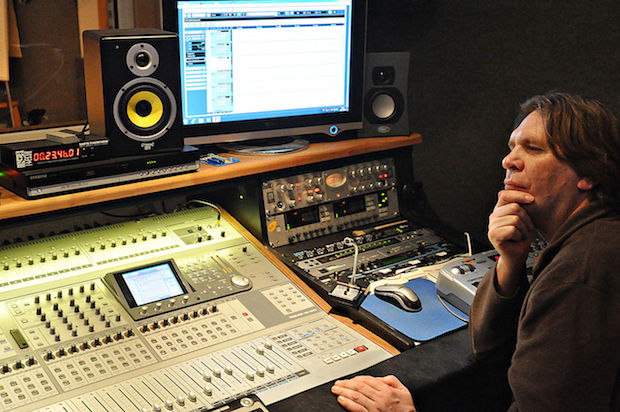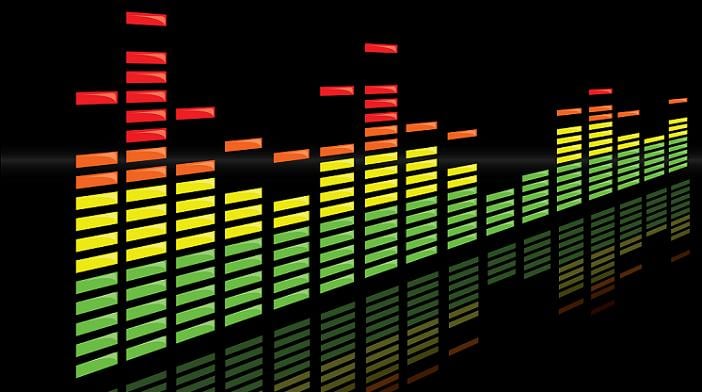 Image via Wikimedia Commons
Image via Wikimedia Commons
I've had many friends over the years who were very musical and wanted to eventually make music their living. However, I noticed that while many of these friends dabbled in a large number of musical activities, they didn’t have a very clear idea as to what they wanted to actually do within the music industry as a career.
The music industry can be incredibly complex, and I don't blame anybody who isn't sure about what path they see in their future. The good news is that there definitely is money in music if you're talented, dedicated, and have the drive necessary to live the hustle. If you or somebody you know is fairly musical and having trouble finding their direction in the music industry, I hope this step-by-step article can help you get on the right track.
What are you already really good at?
Your first step should be taking a nice sit down and having an honest conversation with yourself. What musical skills do you possess, really?
I'm not talking about things that you can "kind of" pull off. I'm talking about the skills that you can actually perform with a level of proficiency. These skills don't necessarily need to be developed to a professional level at this point, but they should be things that you consider yourself to be good at and feel comfortable and confident applying. If you like to talk about your skills as an audio engineer when your only real experience has been running the four-channel PA system for the vocals in your band's rehearsal space, then I wouldn't include that on this list.
These skills can be performance related, such as playing an instrument (or more than one). Definitely think about other musical skills to add to this list outside of performance as well. Skills such as composition, songwriting, and audio, as well as business skills such as marketing, management, and booking should all be considered for this list.
In order to get an especially honest idea, I'd also recommend sitting down and having a chat with other talented musician friends who you respect, as well any mentors who have helped guide you to where you are now. From what they have seen of you, in what skills do they think your true potential has shone the brightest? They may confirm your own thoughts, but it's completely possible that these people who have watched you grow will have insights that you haven't noticed or seen in yourself yet. Again, make sure it's people you have a strong connection with who have seen you progress as a musician. Folks who don't know you very well might not have a really strong impression of your skills, and probably don't know you as well as a person either.
What do you want to get better at?
Another thing to take note of is all the musical skills you've wanted to explore or develop further. You could certainly possess undiscovered talent that's just waiting to explode in a skill or musical activity that you've yet to explore. Perhaps you write your first song only to discover that it was the most fun and fulfilling activity you've ever experienced. If there are any musical activities that you've wanted to really dive into and check out, I absolutely encourage you to explore and try as many things as you can. You may be surprised to discover new things that you really like, or things that you thought you'd enjoy that you ended up hating. For example, I had always had a strong curiosity towards studio engineering. After taking a few classes and working on a few projects outside of school, I realized that to me, it was something that I just didn't enjoy doing all that much. You might have the same realization after diving into a new musical experience. That just highlights why exploration is so important.
What do you genuinely enjoy?
In school, you may have excelled in math, but that doesn't mean you actually enjoyed doing the work and learning about the subject (or at least, not as much as other subjects). The same can be true for your musical skills. Out of all the skills you've listed, is there anything that you that you don't particularly enjoy doing? Maybe you've been able to keep your band consistently booked every week for the last six months, but you'd much rather have somebody else in the band take over the job. Or maybe you can write a pleasant string quartet, but find actual process of composition to be tedious or boring.
Now, start thinking about which of your skills you enjoy the most. What would be your ideal life in the future? Is it touring with a band? Playing for famous artists live and in the studio? Working intimately behind the scenes to make a live show, studio session, or tour go smoothly?
At this point, you should have a pretty solid three-category mental diagram. There are the skills you're good at and love, the skills you dislike, and the skills you enjoy, but not as much as your primary skills. This in itself should give a kickstart to your motivation and sense of direction.
Now, it’s time to figure out how to take these skills and build a unique career path out of them.
How can you monetize that?
Of course, taking your love for music and growing it from a hobby into a career involves learning how to translate your skills into actual dollars that will feed you and pay your rent. Like most skilled trades, your skills can be rebranded as services to offer clients for money. Of course, in order to monetize these skills, you must be able to perform them with a level of competency that would be expected of other professionals. However, even if you aren't providing professional-quality work yet, it's worth it to start thinking early about how each of your skills can be used to make money if music is really what you want to do as a career.
Here are just a few examples of career options you can consider pursuing based on your skills:
Performance:
- Freelance musician/sideman
- Member of an active touring/recording band
Education:
- Private music instructor
- School music teacher
- Clinician
Audio:
- Live sound engineer
- Recording engineer
- Sound designer
- Record producer
Songwriting:
- Singer-songwriter/band leader
- Jingle writer
- Commercial songwriter
- Freelance songwriter
- Staff songwriter for a publisher/record label
Composition:
- Freelance composer/arranger
- Copyist
- Film composer
- House composer/arranger at a studio, publisher, or record label
Business:
- Marketing
- Booking
- Management
- PR
Keep in mind, you definitely don't need to pick a single path to devote yourself entirely to. Most musicians use all of their skills in some way or another to acquire several small streams of income. Use everything that you are good at, even the things you don't necessarily like as much, to your advantage!
[6 Smart Ways to Make Money in Music While You're Still Waiting for Your Band to Take Off]
As mentioned above, you should utilize as many of your skills as you can manage in order to make money. However, since some of these skills are likely going to be more enjoyable to use than others, remember to make time to work on the skills you really want to be using as your primary career. Taking gigs that you say yes to strictly for the money can be a little soul sucking if you aren't also working with other skills that you really want to be using. It can be a difficult balancing act at times, but navigating it is going to be essential to living a happy life in music.
Dylan Welsh is a freelance musician and music journalist, based in Seattle, WA. He currently plays in multiple Seattle bands, interns at Mirror Sound Studio, and writes for the Sonicbids blog. Visit his website for more information.







